Yesterday we learned how the amazing Jack Davis earned the title, "fastest draw in the East or the West." Today, again thanks to the generosity of Bill Peckmann, we'll see a dozen examples of Davis' legendary speed and prowess. Keep in mind that, just as with yesterday's Time magazine cover, Davis might have done as many as 15 pencil concept sketches before executing the final illustration for any one of these covers!
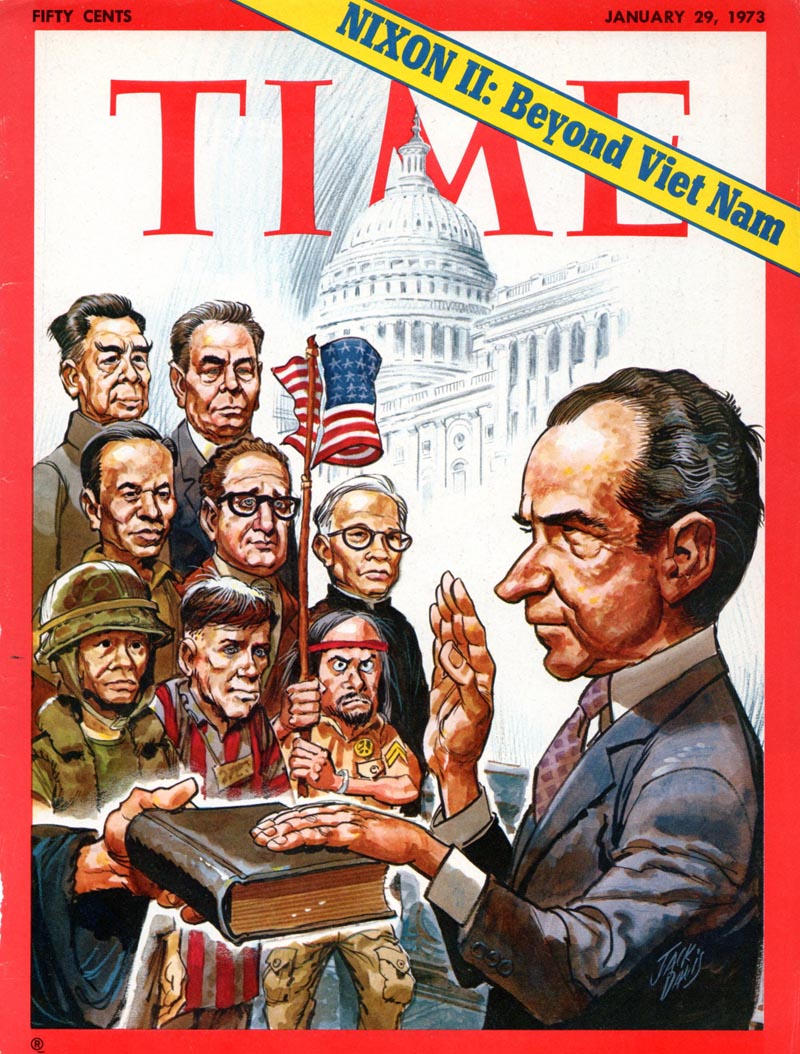
In his April '77 American Artist magazine article on Jack Davis' work for Time, writer Nick Meglin explains how Davis would come home to Westchester County from his meeting with Time's editors in New York, an approved sketch and related reference materials under his arm. This would usually be on a Wednesday afternoon. Davis would immediately begin working on the final, often staying at his drawing table until 11 p.m.
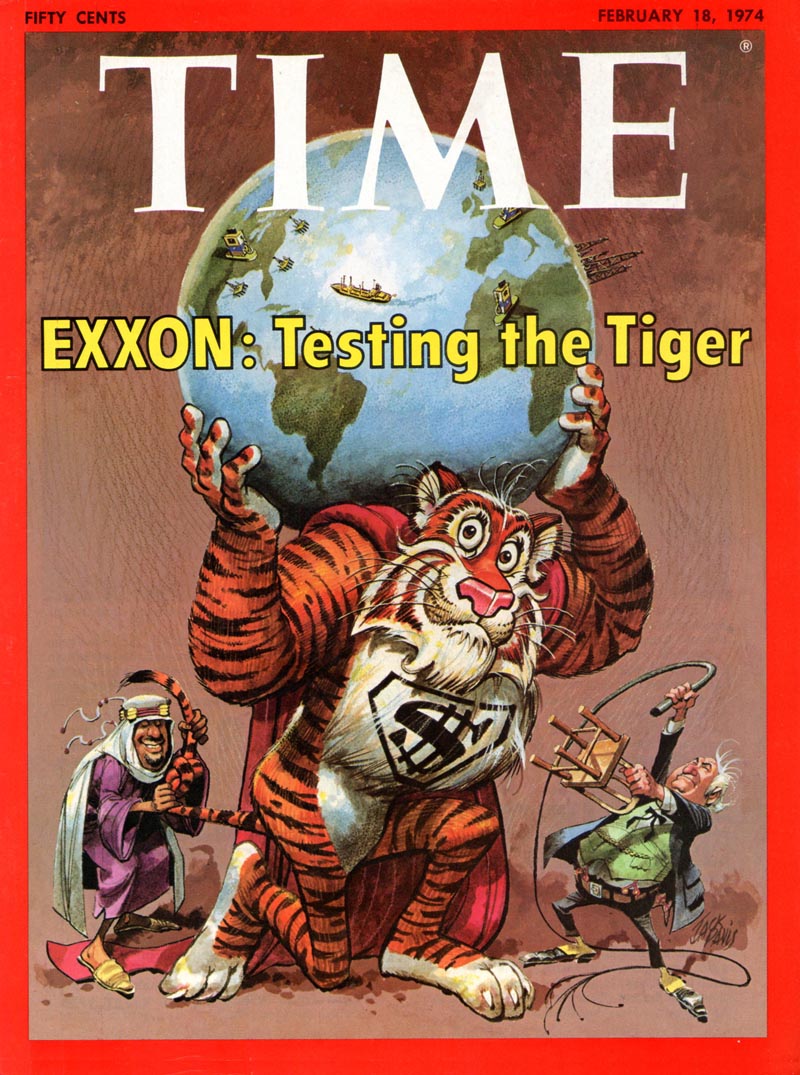
By 11 a.m. the next morning Davis would already be back in New York, the finished art delivered, and Davis awaiting approval or changes. He always came prepared with an envelope containing a pencil, ink, watercolour paints and brushes, and an electric eraser in case last minute changes were requested.
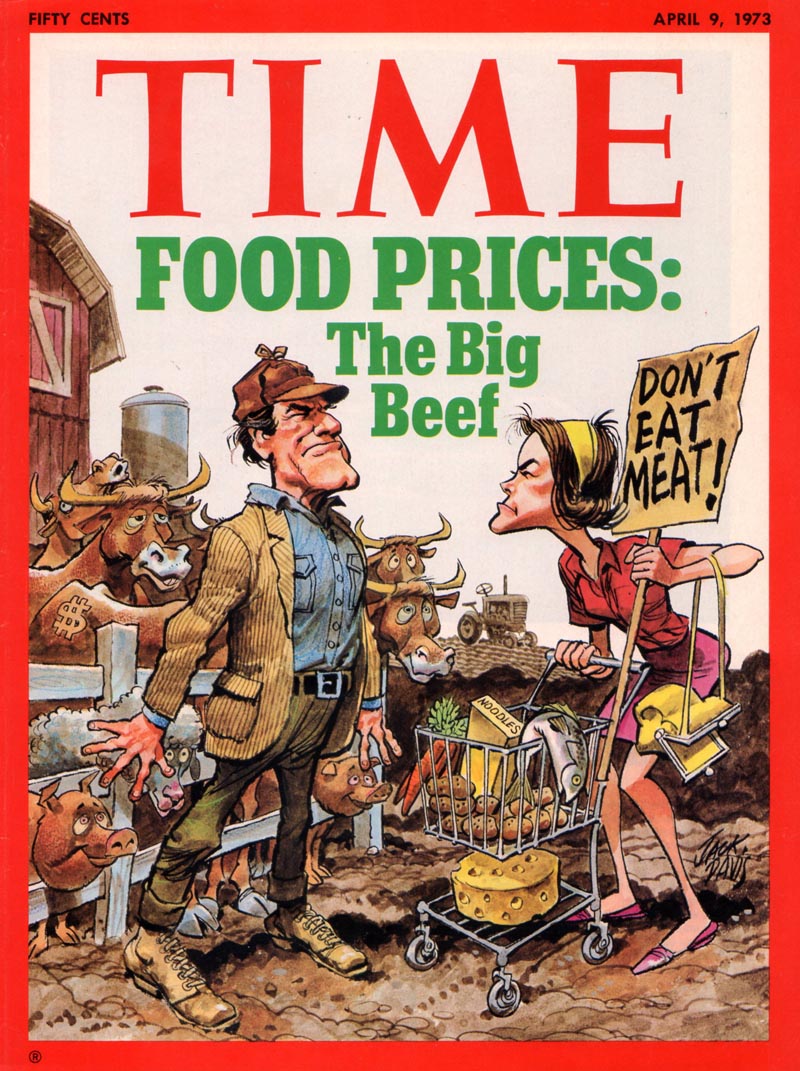
Meglin explains that Davis liked to work on heavy Strathmore kid-finish illustration board. He found the surface could tolerate large areas of colour being erased and reworked.

Davis said, "I don't think I'll ever not be impressed that my work appears on the cover of a magazine like Time." Compared to the usual scenario, where he would do his work and it would be months before it was finally printed, Time offered the added bonus of fast turn around. "With Time," Davis commented, "it's like 'instant satisfaction.' You deliver it Thursday and see it again Monday."
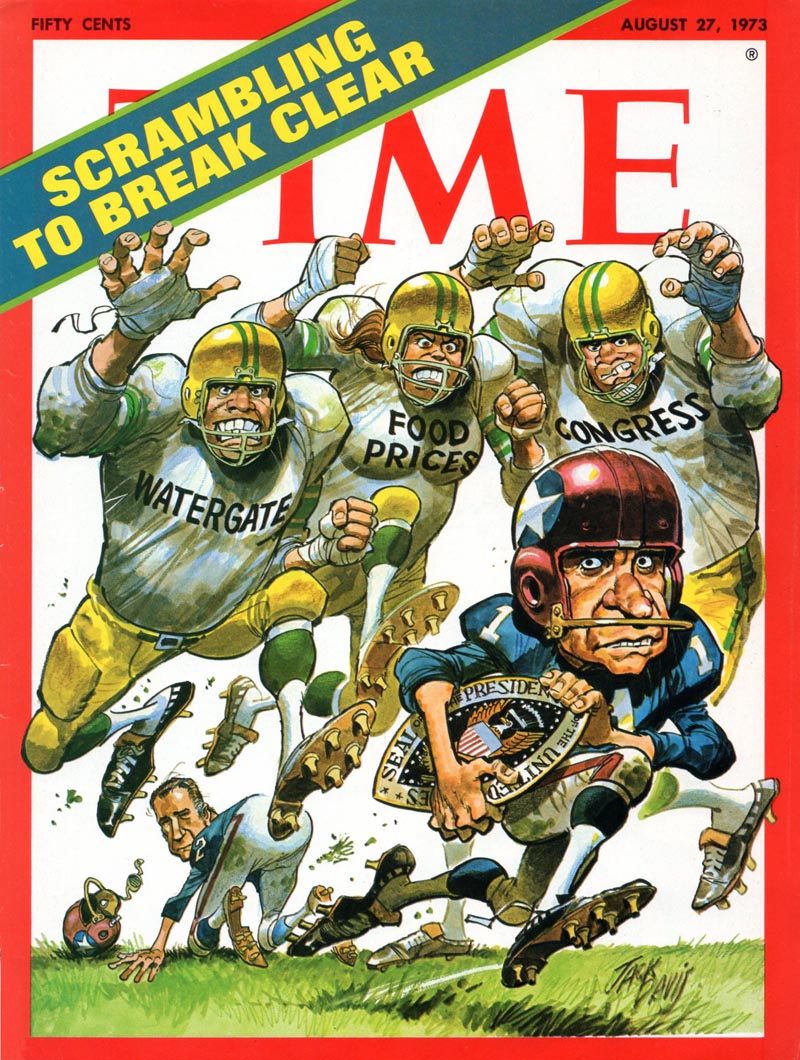
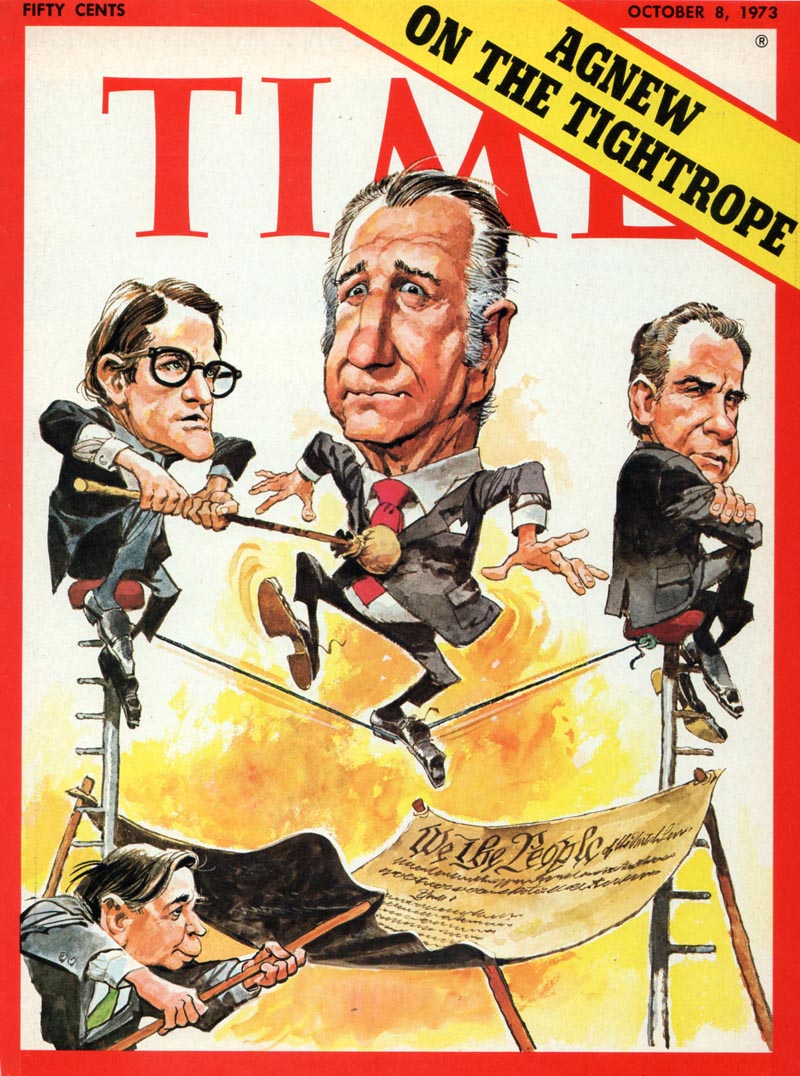
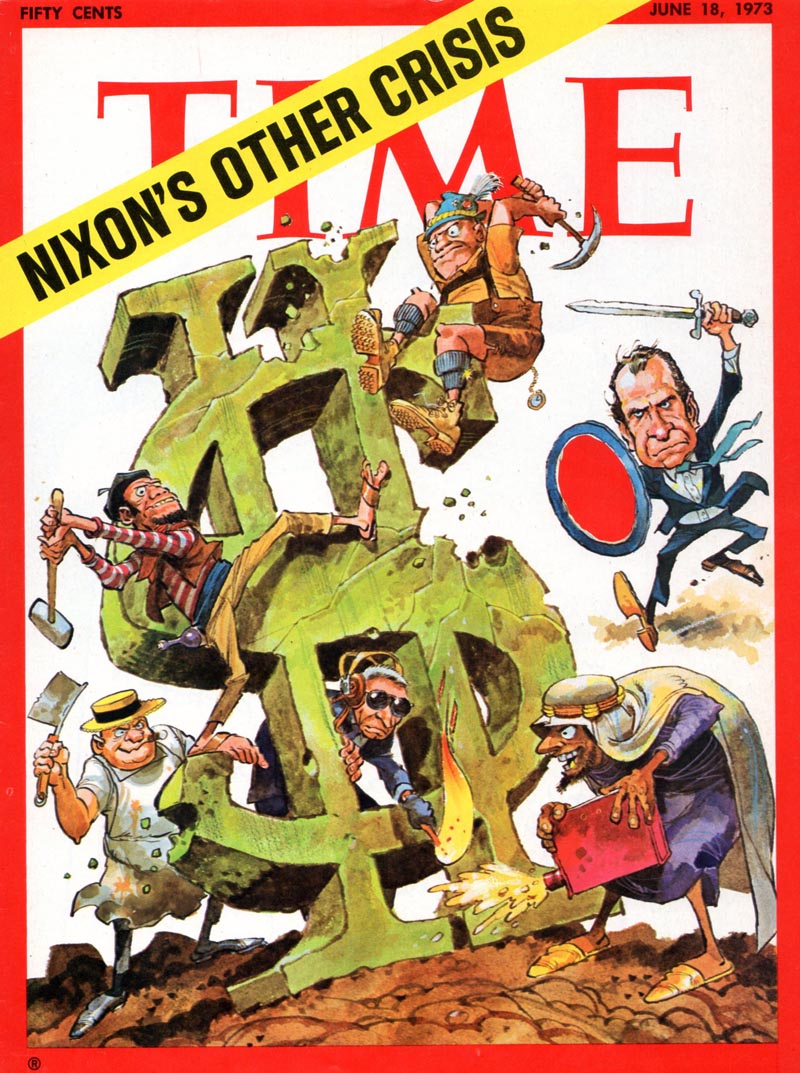
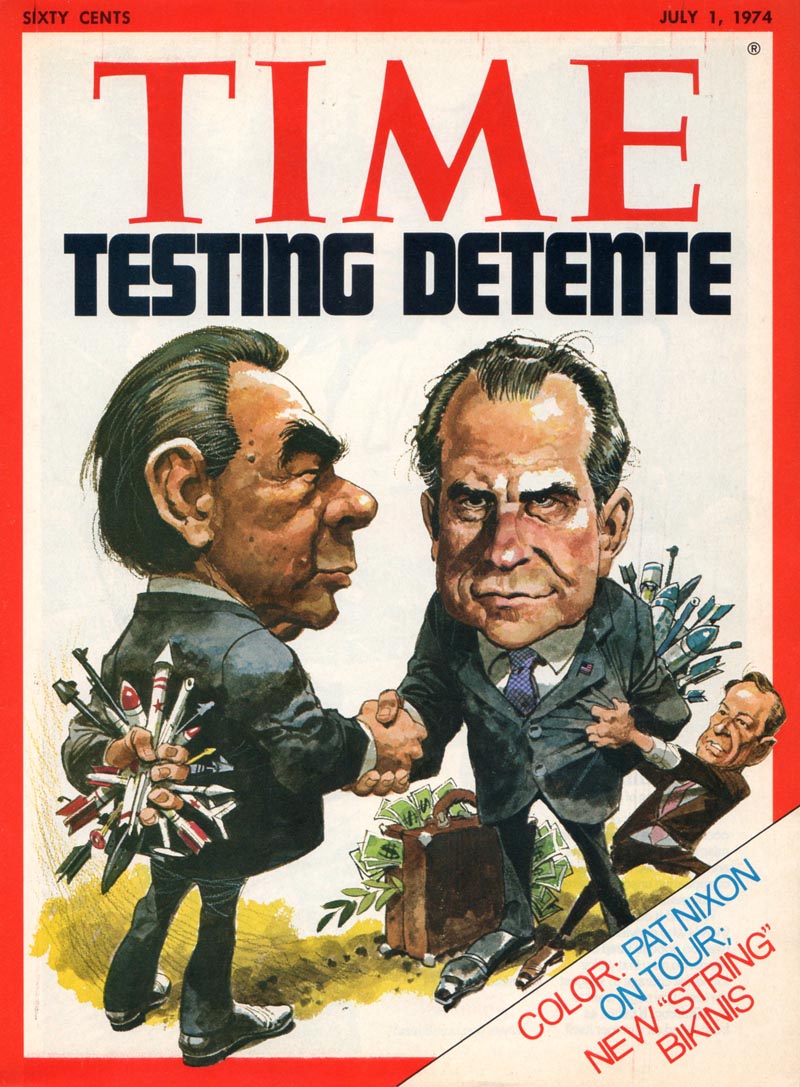
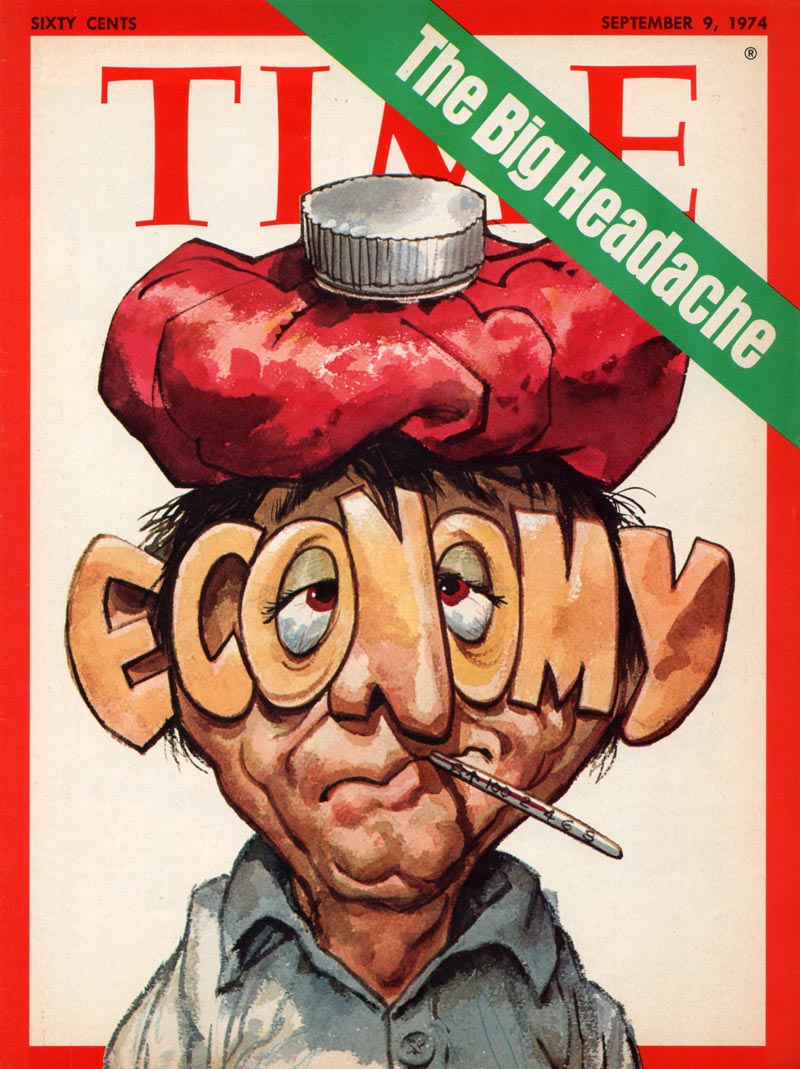
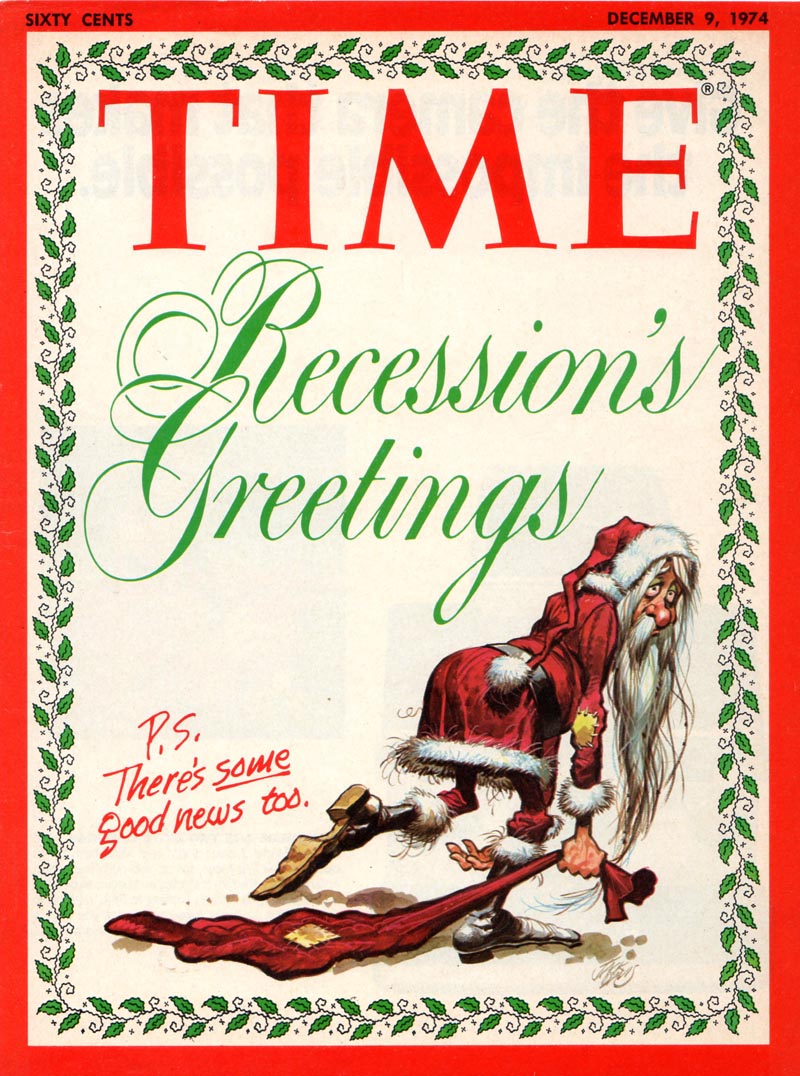
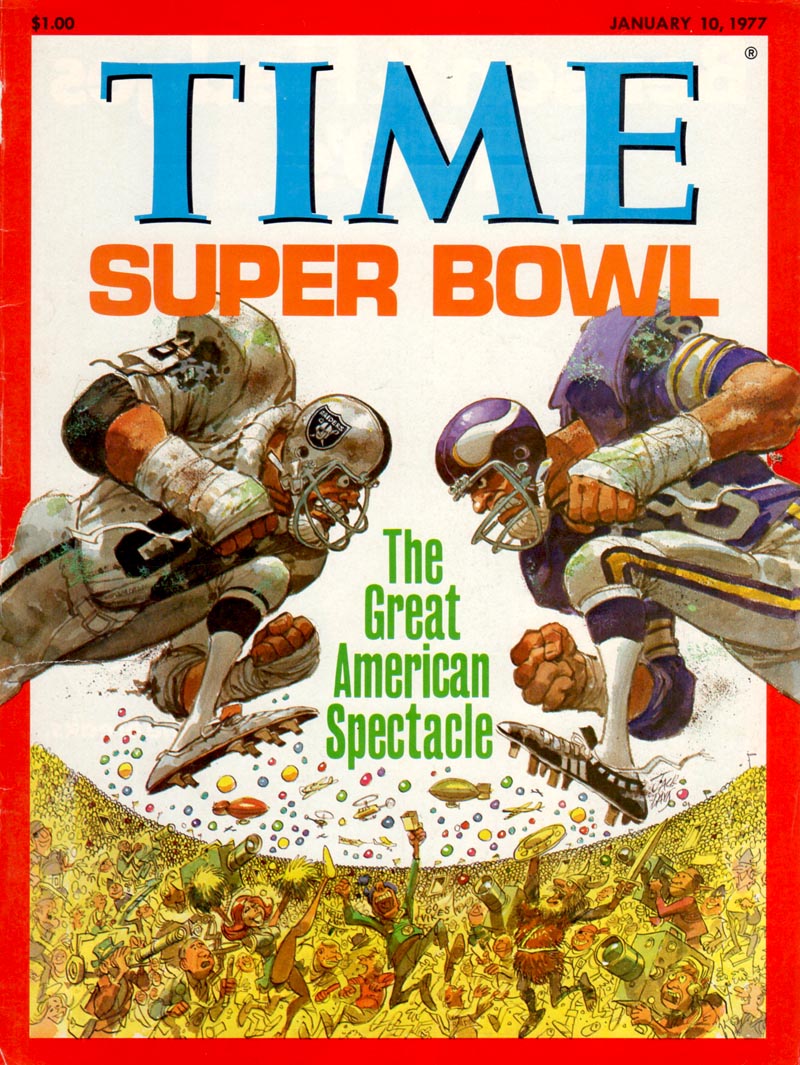
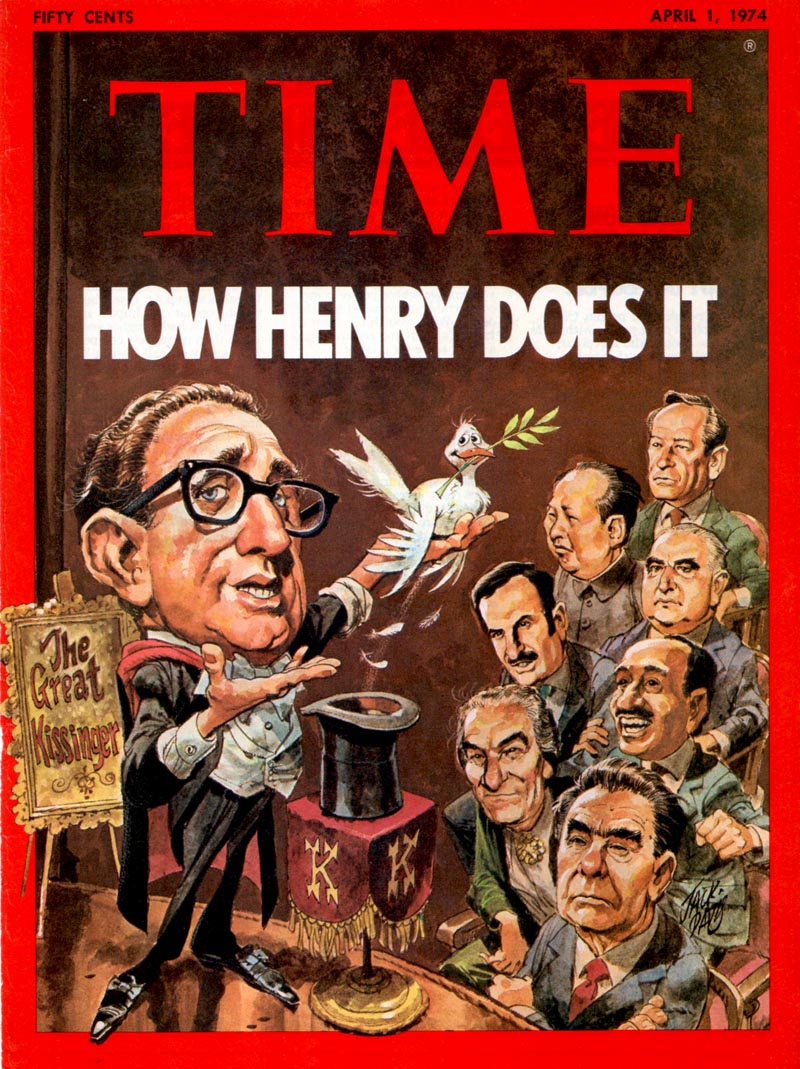
* Many thanks to Bill Peckmann, who provided all of today's scans and Nick Meglin's article from American Artist magazine!

In his April '77 American Artist magazine article on Jack Davis' work for Time, writer Nick Meglin explains how Davis would come home to Westchester County from his meeting with Time's editors in New York, an approved sketch and related reference materials under his arm. This would usually be on a Wednesday afternoon. Davis would immediately begin working on the final, often staying at his drawing table until 11 p.m.

By 11 a.m. the next morning Davis would already be back in New York, the finished art delivered, and Davis awaiting approval or changes. He always came prepared with an envelope containing a pencil, ink, watercolour paints and brushes, and an electric eraser in case last minute changes were requested.

Meglin explains that Davis liked to work on heavy Strathmore kid-finish illustration board. He found the surface could tolerate large areas of colour being erased and reworked.

Davis said, "I don't think I'll ever not be impressed that my work appears on the cover of a magazine like Time." Compared to the usual scenario, where he would do his work and it would be months before it was finally printed, Time offered the added bonus of fast turn around. "With Time," Davis commented, "it's like 'instant satisfaction.' You deliver it Thursday and see it again Monday."








* Many thanks to Bill Peckmann, who provided all of today's scans and Nick Meglin's article from American Artist magazine!






0 comments:
Post a Comment